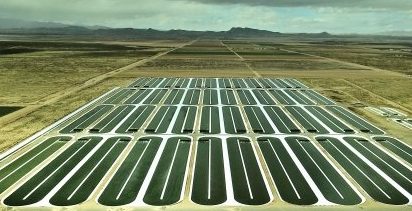The first carbon-negative biorefinery in Europe opened in Istanbul and is utilising algae to make a variety of products for multiple sectors in Turkey.
A biorefinery turns organic material into energy and useful products.
Turkey is hoping to use both microalgae and macroalgae to produce a variety of products including fuel, food supplements and fertilisers at its new biorefinery
The facility is part of a project that strives to use “bioeconomy” to drive development, according to Berat Zeki Haznedaroglu, an assistant professor at Bogazici University.
The biorefinery processes algae biomass to develop different products and technologies for six different sectors.
The refinery is part of Turkey’s ‘Integrated Biorefinery Concept for Bioeconomy Driven Development’, or INDEPENDENT project which aims to provide fuel for the energy sector as an alternative to dependency on fossil-based and non-renewable resources among others.
It is also planning to make food supplements, pharmaceutical components, organic fertilisers and biofuel using algae being cultivated in production reactors.
The project, which has a budget of €6 million euros, is 85 per cent funded by the European Union and 15 per cent funded by the Turkish Ministry of Industry and Technology
The facility is located inside the campus of Bogazici University adjacent to the Black Sea where all the algae production takes place.
euronews.com
